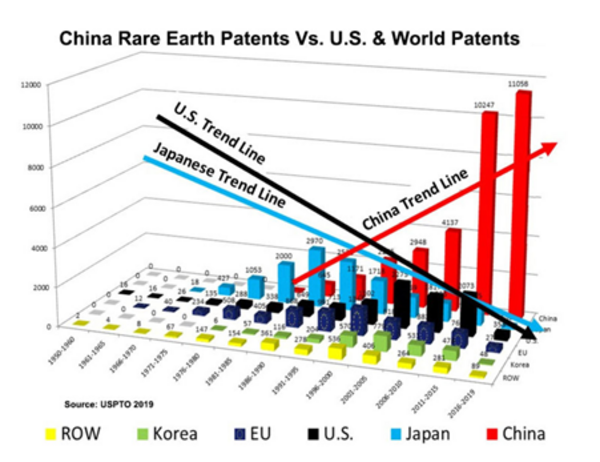Chinas New Rare Earth Export Policy
China’s updates to its rare earth export policies in 2025 indicated a shift in the strategic approach toward critical minerals globally. Improvements in the policy termed China’s New Rare Earth Export Policy 2025 focus on outbound shipment control pertaining to rare earth elements (REEs) important for use in electronics, renewable energy, defense technologies, and other critical domains.
There are new certification requirements for exporters, which include end-use certification for overseas purchasers in a bid to prevent the transfer of sensitive technologies under the China New Rare Earth Export Policy 2025. Additionally, there will be tighter annual limits on 17 key REEs, like neodymium and praseodymium, adding to the burden on exporters. The 2025 changes are in alignment with China’s policies to curb export supply for domestic high-value manufactured goods under the “Made in China 2025” policy.
Recently, the Japanese government allocated ¥100 billion ($680 million USD) to secure alternative REE sources, which are new offtake agreements with production stakeholders from Australia and Africa, and they plan to implement this in 2025. There are also plans by U.S-based MP Materials to inject $200 million to expand the domestic processing capacity in the Mountain Pass facility in mid-2025. They intend to make this increase in the processing capacity the primary one in the country.
Due to China’s New Rare Earth Export Policy, the EU has accelerated the implementation of the Critical Raw Materials Act. By Q2 2025, the bloc has completed co-investment deals with Lynas Rare Earths and Rainbow Rare Earths for new refining plants located in Estonia and Zambia.
In essence, China’s New Rare Earth Export Policy for the year 2025 is transforming the international REE market with new compliance requirements and geopolitical sourcing redirection. Throughout 2025, analysts predict sustained price fluctuations and intensified pressure on downstream sectors.






